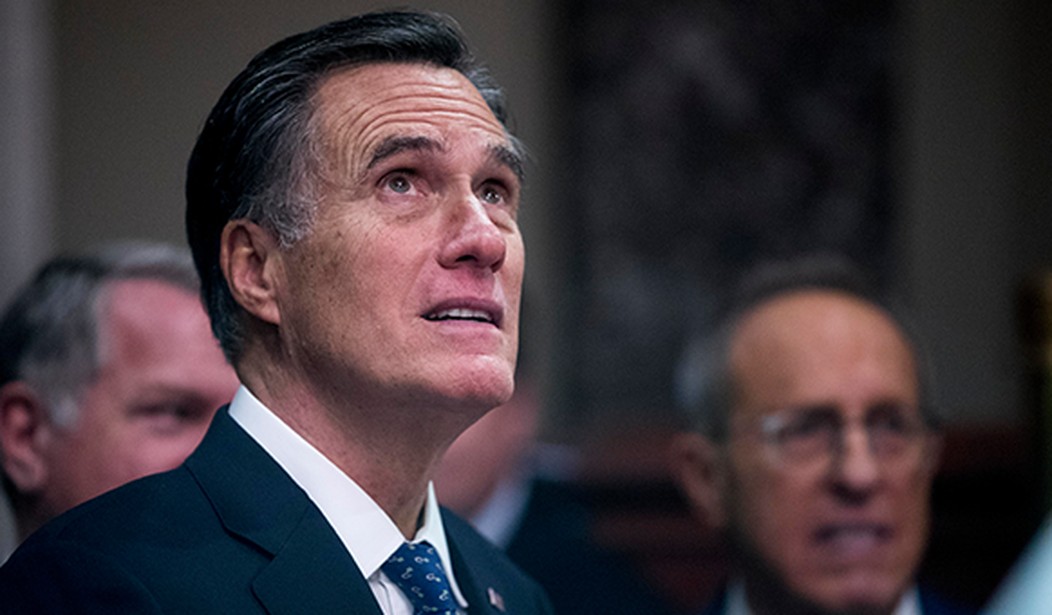Last week the House of Representatives passed a budget deal opposed by many Republicans. While President Trump and bipartisan congressional leadership are supporting the legislation, about twice as many House Republicans voted against the “Bipartisan Budget Act of 2019” as those who voted for it. The Senate will vote on it this week, but some members of the GOP have already registered their opposition.
Florida Senator Rick Scott has declared his intention to vote against the fiscally irresponsible legislation.
As long as I am a member of the US Senate, I will fight to rein in the out of control spending that is putting our economy at risk.
— Rick Scott (@SenRickScott) July 29, 2019
This budget deal would allow for trillions to be added to our national debt and that’s not something I can support. That’s why I’ll be voting “no”. https://t.co/gThAXpHzJN
Utah Senator Mitt Romney also came out against the legislation:
“When I ran for Senate, I promised the people of Utah I would oppose irresponsible spending that adds to our national debt and burdens future generations,” Romney’s statement explained. “This deal unfortunately perpetuates fiscal recklessness by adding another $2 trillion to the debt, and I cannot support it.”
According to Deseret News fellow Utah Senator Mike Lee also plans to vote against it:
“If we can't control spending now when the economy is performing about as well as it possibly can, then when can we?” Lee asked. “When is it going to be any easier to deal with this problem?”
The state's senior senator said the way to “start making steps in the right direction is to vote against bills, bills like this one, that do not meaningfully address the problem.”
Recommended
Kentucky Senator Rand Paul strongly criticized the legislation, noting that, “The proposed budget deal violates every principle of conservatism.”
The proposed budget deal violates every principle of conservatism. The deal allows unlimited borrowing until after the next election and eliminates the spending caps. Every conservative in America should respond in outrage: “Why did we even bother to elect Republicans.” pic.twitter.com/hwojxDed0s
— Senator Rand Paul (@RandPaul) July 24, 2019
Senator Josh Hawley (MO) decried the process used to reach the deal and said that he plans to vote against it.
"This budget process, if we can even call it a process, put taxpayers at the mercy of a House Speaker who has no interest in prudent budgeting and who is more concerned with scoring political points than protecting taxpayers or helping working families.
Our system is not supposed to work this way. When the entire federal budget depends on four or five people striking a deal among themselves, something is not right. The budget process has collapsed, and that collapse is breaking Congress."
Texas Senator Ted Cruz released a statement criticizing the deal and Indiana Senator Mike Braun spoke out against the deal last week on CNBC.
Politico reported that Senator Ron Johnson plans to vote against the legislation:
Sen. Ron Johnson (R-Wis.) said leaders did not include his legislation to prevent government shutdowns, so that’s enough to give a thumbs down.
“I don’t feel a lot of obligation to support an increase in the debt ceiling,” Johnson said.
“Highly disappointed that as part of that deal we don’t have a structural reform. That’s what I’ve always asked for,” Wisconsin Sen. Ron Johnson said according to The Hill. “I told the leader that a couple weeks ago. I said, ‘If you want me to support any kind of increase in the debt ceiling, we need a structural reform.’”
The bill is expected to ultimately pass

























Join the conversation as a VIP Member